We need to resuscitate romance in our society: Arshad Mahmud
He feels that a major revival of Urdu poetry is needed to bring the personal connection back in our music
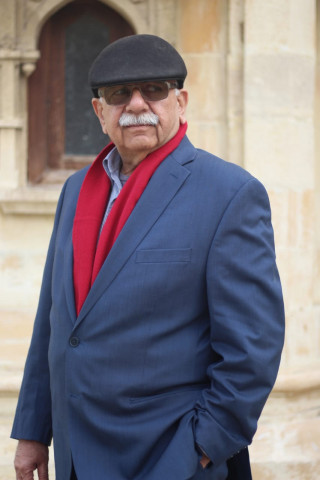
We need to resuscitate romance in our society: Arshad Mahmud
However, as predictable as that sounds, the motivations behind Phool Khiltay Hain in Maheeno Mein are anything but. The musical performance, curated by Arshad Mahmud, a man who has seen the rise and fall of the music industry, stemmed from his belief that the essence of romance is decaying in Pakistan and our pop culture.
According to Mahmud, we increasingly find ourselves consumed in the chatter of the world. We worry about everything under the sun, ranging from international crisis to what the next big career move is for us. What we don’t worry about however, are our emotions.
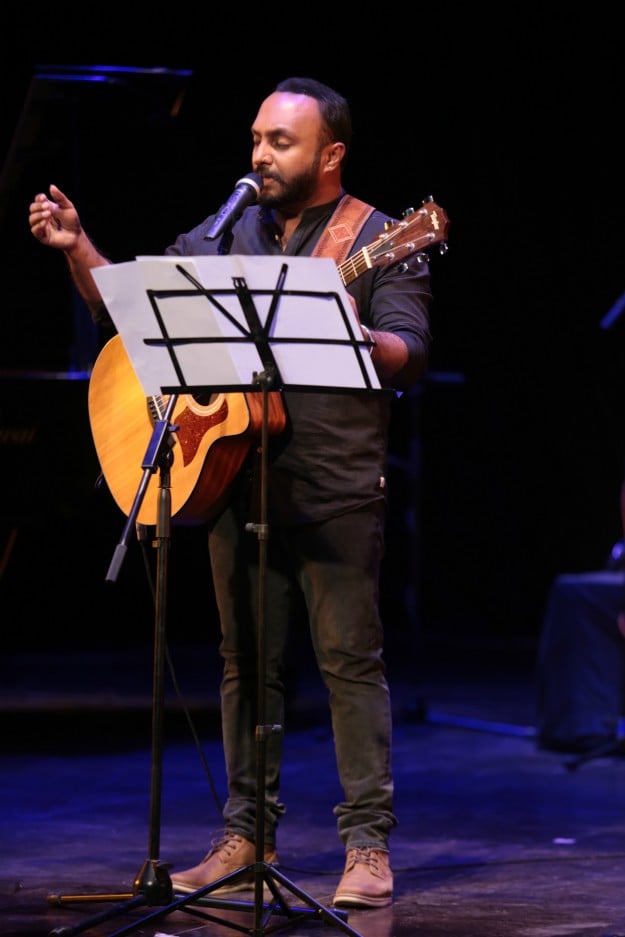
Maybe it was the warm spring air or maybe it was the way Mahmud had described this dearth of romance during his monologue at the start of the performance. Whatever it was, it left us asking for more. The Express Tribune spoke to the composer post-show about what he thinks motivated this sudden shift away from romance that was all the rage less than 30 years ago.
“We see romance as an augmented and dramatised version of reality. It’s something that is removed from our daily narrative,” said Mahmud. And this he believes is imbued by our contemporary music and artists who fail to convey to their audience what he terms to be the ‘essence of romance.’
Drive for the greater good
According to the maestro, somewhere along the artist community decided that our art, particularly music, needs to represent some kind of greater good. We began making what he called ‘sohni darthi’ music. Our music started to reflect a collective conscience of identity politics.
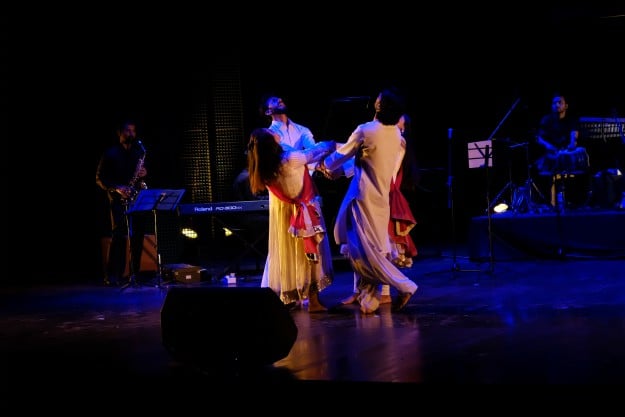
“In all this business of making sohni darthi we forget that when it comes down to it, we are the sohni darthi. What we feel is what makes our collective conscience, not something abstract that exists beyond us,” he says.
The composer of Yeh Haseen Shaam fame firmly believes that this neglect about people, as individuals with their personal cathartic needs, leaves no room for art to be made around a single person’s emotions. “We have stopped talking about these delicate emotions,” he said, asserting that wasn’t the case back in the day.
We had to ask, though, if this was true for the industry or simply a veteran’s well-earned nostalgia that leads the composer to subscribe to such ideas. Mahmud feels it isn’t about that because he and his other fellows continue to make new music, what it does come down to however, is what that work represents.
Quoting the famous Mohammad Rafi and Ayesha Bhosle duet, abhi na jao cho kar, ke dil abhi bhari nahi, Mahmud did however concede that songs like this one are rarely made anymore, if at all.
Who sets the tone?
“These days the people who are deciding what works and what doesn’t have no sense of art”, he says. He feels the audience for romance is still there, but those few who run the show lack the understanding to provide this much-needed content.
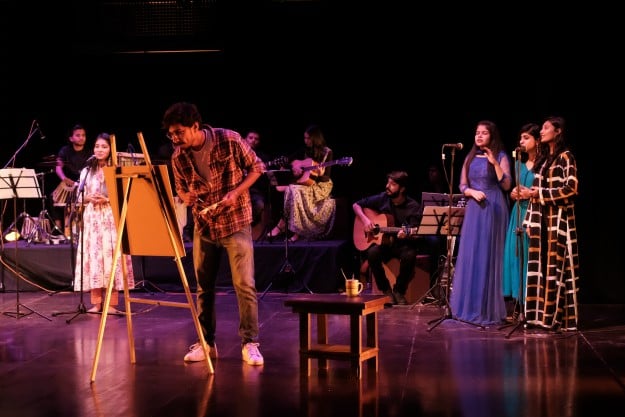
Take for example, the dying tradition of Khayal Gaiki, which is a seminal part of our music heritage, even that eventually relies on words and poetry. “So a large push is needed to make the tradition of Urdu poetry popular again,” asserts Mahmud. He thinks that it is in this tradition of poetry that even the most mundane statements are made beautifully, leading to an emotionally invigorating and transformative experience. “It increases the spectrum of communication,” he says.
To curate or not to curate?
As a man who encourages youngsters to create new arrangements and compositions, asking people to move backwards seems like an anti-progress stance. So that begged the question: should contemporary artists seize to make radically new content and be expected to curate from existing material?
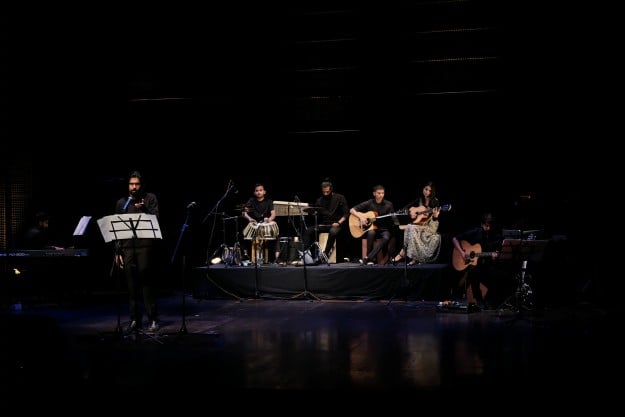
“Well I tested this on young people and they all felt that they could relate to the poetry I choose for the compositions,” says Mahmud. For ‘Phool Khiltay Hain In Maheeno Mein’, he handpicked poetry pieces for Napa alumnus who then made new compositions around that. The result was a mix of shock and awe as students not only responded to the poetry by making decent compositions but also related to the subtlety of emotion and expression.
“So the debate is not about new works and rehashes,” Mahmud exclaims. “It is essentially a basic lack of exposure. Young people simply lack exposure to older poetry, and therefore fail to allude to certain kinds of emotions as well as they had been alluded to in the past.”
Have something to add to the story? Share it in the comments below.

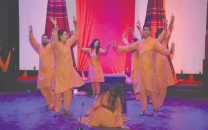


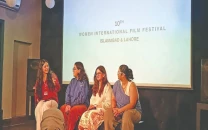













COMMENTS
Comments are moderated and generally will be posted if they are on-topic and not abusive.
For more information, please see our Comments FAQ